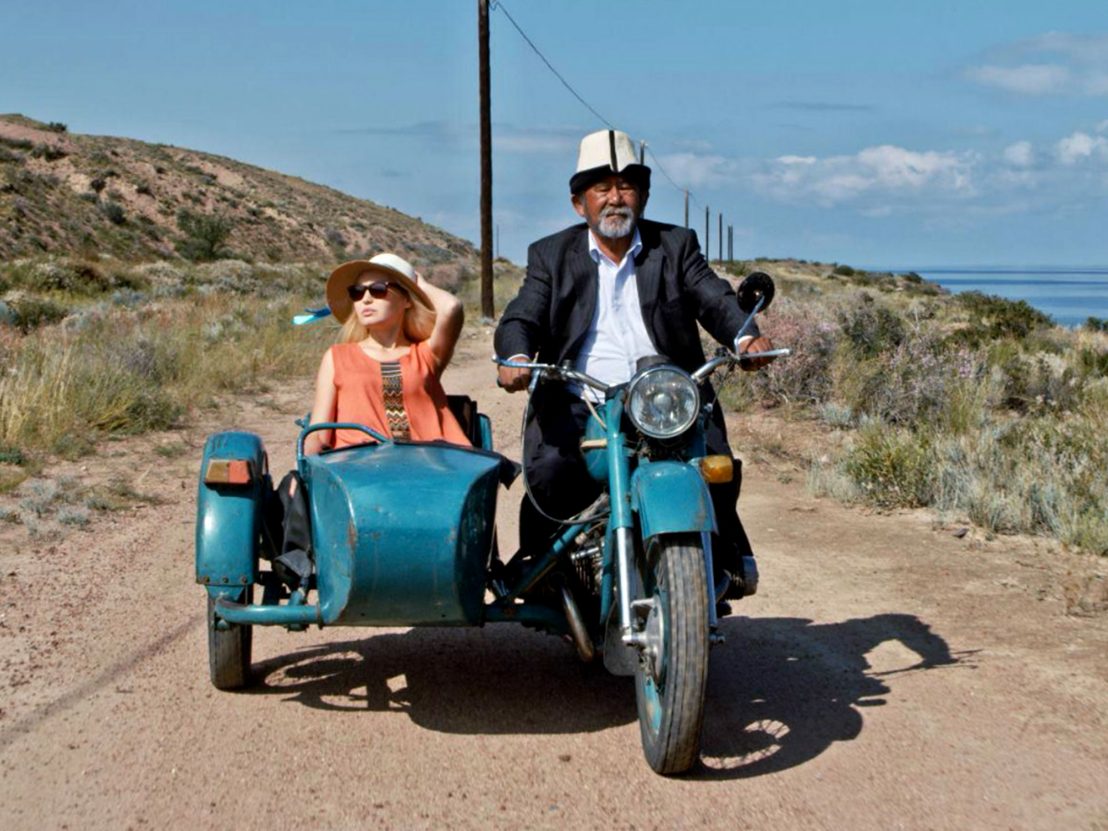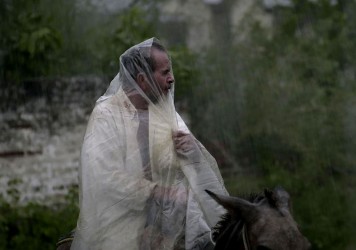
The conflict between tradition and modernity came to the fore at Estonia’s largest film event.
The Tallinn Black Nights Film Festival is named in honour of the unrelenting darkness that falls upon the city throughout Estonia’s long winter months. It is a unique event, showcasing a carefully curated, yet eclectic mix of cinema from across the globe.
Estonia has a long history of invasion and occupation, and 26 years since its independence from the Soviet Union it arguably remains a nation of fractured identity, torn between its turbulent past and a promising future. This theme shone through the darkness of this year’s festival, with much of the programme leaning towards ideas of memory, national self-determination and the conflict between tradition and modernity. Here are 10 highlights from this year’s endlessly surprising programme.
Coulrophobes are advised to avoid this biopic about Augusto Mendes, a former adult movie star who, during the 1980s, became Brazil’s most famous TV clown. Fully embracing its period setting, Bingo owns its flamboyance, exploding like a party-popper of ’80s hits and garish outfits, endlessly fizzing with the static of a cathode television. Mendes’ clown is the overnight success that, staying faithful to the celebrity biopic template, spirals into drug-fuelled, near-death lows before a triumphant rise to redemption. Despite moments of darkness that connote the man behind the clown, Bingo remains an energetic return to the colourful realm of 1980s television.
A multi-format documentary about digital solipsism, BUDDHA.mov takes an observational style and layers it with screenshots of mobile phone and laptop displays in an attempt to understand the psyche of Buddha Dev, a flamboyant cricketer, and aspiring movie star from Goa. The film initially begins as a modest character study, but Buddah’s is a life lived through screens, and director Kabir Mehta employs a web-browser based aesthetic to scrutinise his various Twitter, Instagram and WhatsApp interactions. The result is a hilarious, if often worrying, examination of digital self-curation.
Writer/director Aktan Arym Kubat, a leading filmmaker in the newly emerging Kyrgyzstani cinema (see also The Night Accident), stars as a projectionist-turned-horse-thief confronted by the religious and economic forces eroding the traditional values of his homeland. Defined by a magical, yet heart-breaking approach, Kubat’s profoundly moving follow up to 2010’s The Light Thief engages ancient Kyrgyz folklore about the relationship between men and horses in a subtle dance with the region’s contemporary landscape of growing wealth. Ultimately this is a film about the power of storytelling amid a culture in danger of disappearing.
After killing several of the men who tried to rape her, a young widow embarks upon a journey of liberation. However, she just can’t shake the headless ghost of one of her assailants. Marlina might be driven by an all-consuming anger, but this ravishingly shot, female-driven Western (complete with it’s own Ennio Morricone inspired score played on regional instruments) is laced with a gentle humour. Indeed, behind the backdrop of death and revenge lies a tender tale about motherhood and the difficulties of being a woman in Indonesia.
Ali and her family have acted as guardians of a sacred spring used to heal the sick and infirm of their village for years. But then one day the water dries up, is it because of the power plant being built down stream, or does it signal Ali’s burning desire to escape her father’s conservative parenting style? Deliberately paced and attuned to the indiscernible frequencies of the landscape, this visually ravishing meditation on the realities of womanhood leads the viewer down a misty, poetic path that yields an effect that is both subtle and strange.
Estonian director Rainer Sarnet pillages his nation’s myths and legends to create a grotesque curio about greed and unrequited love. Set in a medieval hamlet, where wolves share the forests with ghosts, witches and ‘kratts’ (supernatural servants conjured out of old agricultural implements) a young peasant girl finds her romantic overtures for a local boy scuppered by the arrival of a German baroness. Rendered in mud-encrusted black and white, this genuinely bonkers fairy-tale is a triumph of the gothic imagination.
A glacial ghost story set in a Chinese village threatened by the imminent arrival of a hydro-electric dam, this unhurried tale about staying spiritually grounded amid vast social change follows Mr Yu, a Beijing businessman attempting to reconnect with the spirit of his dead son by travelling to the place in which he spent his final days. Resisting an inevitable descent into melodrama, the film’s hypnotic pace allows the audience to absorb the layers of memories from the landscape which, much like the spirit of Mr Yu’s son, refuse to leave.
A spoonful of humour helps the medicine go down in Gjorce Stavreski’s satirical thriller. Directed with wit and precision, the film follows a young man from Skopje, who discovers a hidden package of drugs and decides to bake a pot-infused cake to help his cancer stricken father. However, it doesn’t take long until his new found pastry skills begin to attract some unwanted attention. Part bumbling crime caper, part gritty social realism, the film’s stoner premise is underpinned by a rough-hewn realism that elevates this sharply executed comedy into a heart-warming expose of Macedonia’s broken health system.
A bride-to-be attempts to unearth her past whilst her fiancé struggles to hide a devastating secret in Blerta Zeqiri’s impressive LGBT drama. This is a tragic tale of a young couple whose wedding plans are disrupted by the arrival of an old friend, with flashbacks to the Kosovan war revealing conflicts of the heart amid the horror of ethnic cleansing. A sensitive portrayal of impossible love that asks if you can be true to yourself if you’re still trying to bury the past.
An elderly man runs over a mysterious woman on his way to kill the businessman who many years ago stole his wife and children. Bringing her home to heal her wounds, an unlikely friendship emerges and he takes his first steps on a fable-like journey to understand life’s modest pleasures. The deserving winner of the festival’s main prize, this is a film about the intimate mysteries of being alive that lulls its audience into a dreamlike realm with occasional bursts of absurdity.
For more info on the Tallinn Black Nights Film Festival visit poff.ee
Published 5 Dec 2017

By Thomas Curry
Celebrate the 50th anniversary of the decriminalisation of homosexuality in the UK with these great films.

ArteKino is changing the way we think about festivals.

Themes of social displacement and isolation will be explored in the documentary series ‘Frames of Representation’.